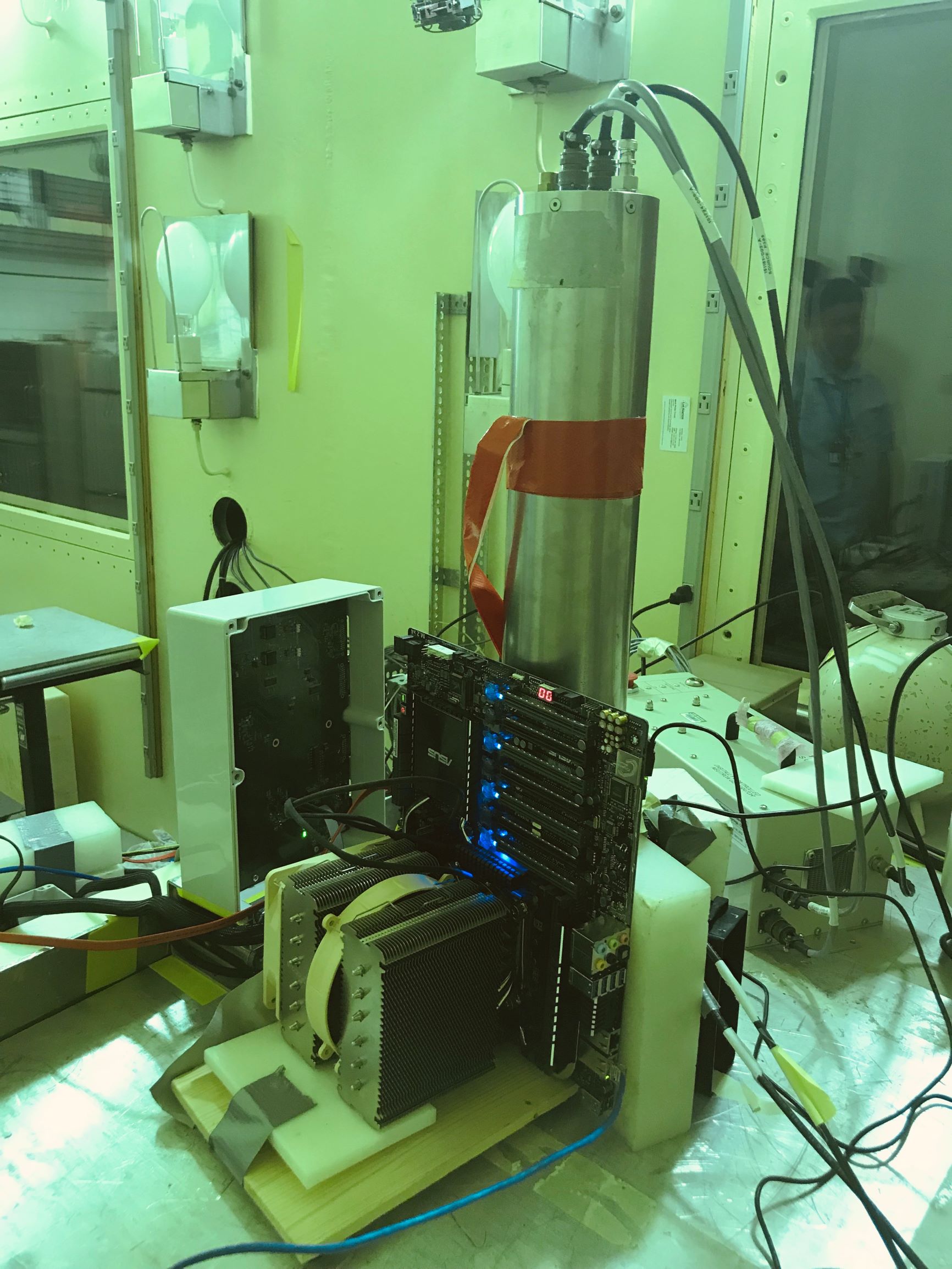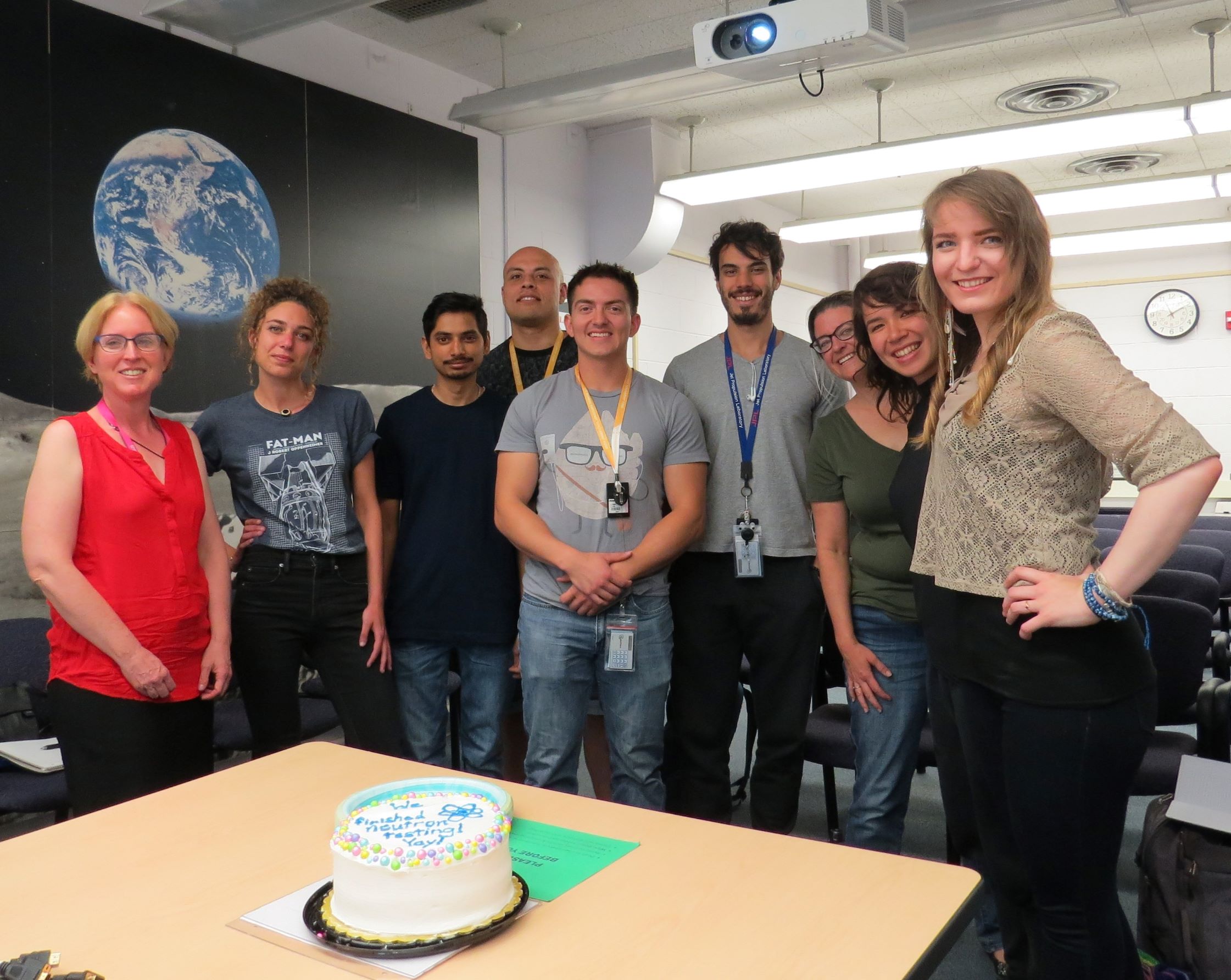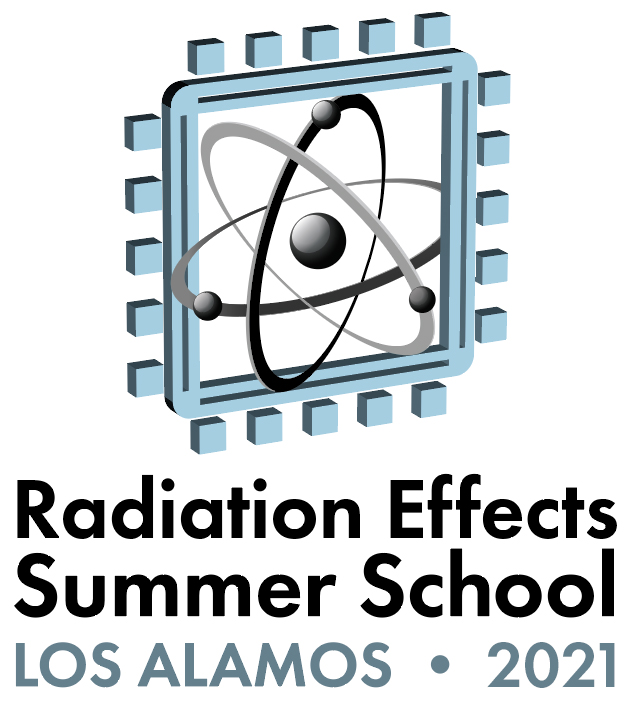Los Alamos Radiation Effects Summer School
June 7 – August 6, 2021
Contacts
- Contact the summer school
- radfx-school@lanl.gov
- Co-Director
- Heather Quinn
- Co-Director
- Sean Blanchard
- Co-Director
- Elizabeth Auden
Mentors and projects
Each student will work on challenging research projects with a LANL scientist or engineer as their mentor. Projects are related to current research topics in radiation effects with access to Los Alamos data, accelerators, and computation facilities.
The table below lists research projects available for the 2021 session. Please contact eauden@lanl.gov and one of the mentors below for more information.
|
Mentor |
Project Category |
Project Description |
|
Heather Quinn, hquinn@lanl.gov |
Data analysis |
SEFI mode analysis of neutron datasets for Virtex1 to Virtex 5 FPGAs |
|
Heather Quinn, hquinn@lanl.gov |
Data analysis |
Multiple cell upset analysis of neutron datasets for microcontrollers |
|
Heather Quinn, hquinn@lanl.gov |
SEE test |
Neutron-induced SEE comparison of Lattice FPGA and Xilinx 7-series |
|
S. Blanchard, seanb@lanl.gov |
SEE test |
Neutron-induced SEE characterization of high bandwidth memory |
|
S. Blanchard, seanb@lanl.gov |
SEE test |
Neutron-induced SEE characterization of DDR5 memory |
|
S. Blanchard, seanb@lanl.gov |
SEE test |
Neutron-induced SEE characterization for high performance computing (HPC) hardware |
|
E. Auden, eauden@lanl.gov |
Laser + TID test |
Laser characterization of TID damage in voltage references |
|
E. Auden, eauden@lanl.gov |
Displacement damage |
Characterization of displacement damage generated under different electric field conditions |
|
E. Auden, eauden@lanl.gov |
SEE test |
Cold / thermal neutron-induced SEEs in electronic parts containing nitrogen or sulfur |
|
J. Pritts, jpritts@lanl.gov |
SEE test |
Characterization of neutron-induced effects in DC-DC converters |
|
TBD |
Student-defined |
Student-defined research project |
The table below describes mentored projects that students completed during the 2019 Radiation Effects Summer School session:
2019 Projects
|
Mentor |
Project |
|
John Michel |
Title: “Resilience of SHERLOC cosmic ray removal algorithm for spectral data analysis” Description: Characterize errors in cosmic ray removal algorithms in spectroscopic analysis software running on neutron-irradiated processors. It may be possible for the software to also detect and remove anomalous data cause by radiation effects of the system’s memory. Although the code will run on the rad-hard LEON3 processor in the flight instrument, testing will be done using commercial grade memory and an FPGA with an instantiated LEON3 processor. Required student skills: C and python. |
|
Lissa Moore |
Title: “Testing the robustness of dropout under irradiation” Description: Investigate the resilience of a neural net application when single-event effects are incurred during the training and/or inference stages. Single-event effects will be introduced through neutron irradiation of processors running each machine learning model. Required student skills: Python and machine learning or statistics experience. |
|
Brett Neuman |
Title: “Resilience of half, single and double precision algorithms” Description: Compare the resilience of half, single and double precision implementations of an eigenvalue solver running on a processor being irradiated with neutrons. Resilience will be characterized through the relative cross-sections of errors which are 1) detected but corrected, 2) detected but not corrected, or 3) neither detected nor corrected (silent data corruption). Required resources: half, single and double precision implementations of an eigenvalue solver, time at LANSCE, test boards, FPGAs or GPUs Required student skills: C++ along with VHDL/Verilog for FPGAs or CUDA/ Open CL for GPUs. |
|
Josh Pritts |
Title: “Characterization of a COTS embedded general purpose graphics processing unit (GPGPU) for CubeSat Missions” Description: Radiation effects characterization to include neutron-induced single event effects. Develop in-situ data retrieval tools and novel radiation benchmarks for accelerated testing of NVIDIA embedded GPGPUs. Develop data reduction and post analysis tools. Required student skills: Python, C, and CUDA. Experience with Linux-4-Tegra would be ideal. |
|
Heather Quinn |
Title: “Neutron and laser testing of microcontrollers” Description: Characterize microcontroller faults and errors in response to single event effects introduced through neutron irradiation and single photon absorption laser testing. Investigate the single event effect response to benchmark codes running various input vectors on the microcontrollers. Required student skills: Python and C. Experience with microcontroller programming and laser testing ideal. |
|
Paolo Rech |
Title: “Neural network reliability on reconfigurable systems” Description: Characterize and compare the single-event effect response of object detection neural network phases as they execute on FPGAs irradiated with neutrons. The effects of single-event transients and single-event upsets on classification errors will be investigated. Required student skills: C or python, CUDA or VHDL, and a basic understanding of neural networks. |
|
Bob Robey |
Title: “Resilience of half, single, and double precision mini-apps running on different CPU architectures” Description: Compare the resilience of half, single, and double precision implementations of CLAMR, a fluid dynamics adaptive mesh code, as it runs on different CPU architectures as they are irradiated with neutrons. Resilience will be characterized through the relative error rates. Required student skills: C++ and experience in data analysis and statistics. |

Setup for neutron irradiation of
test boards during student experiments.

Students and instructors celebrate
the successful completion of neutron
testing for summer school projects.




